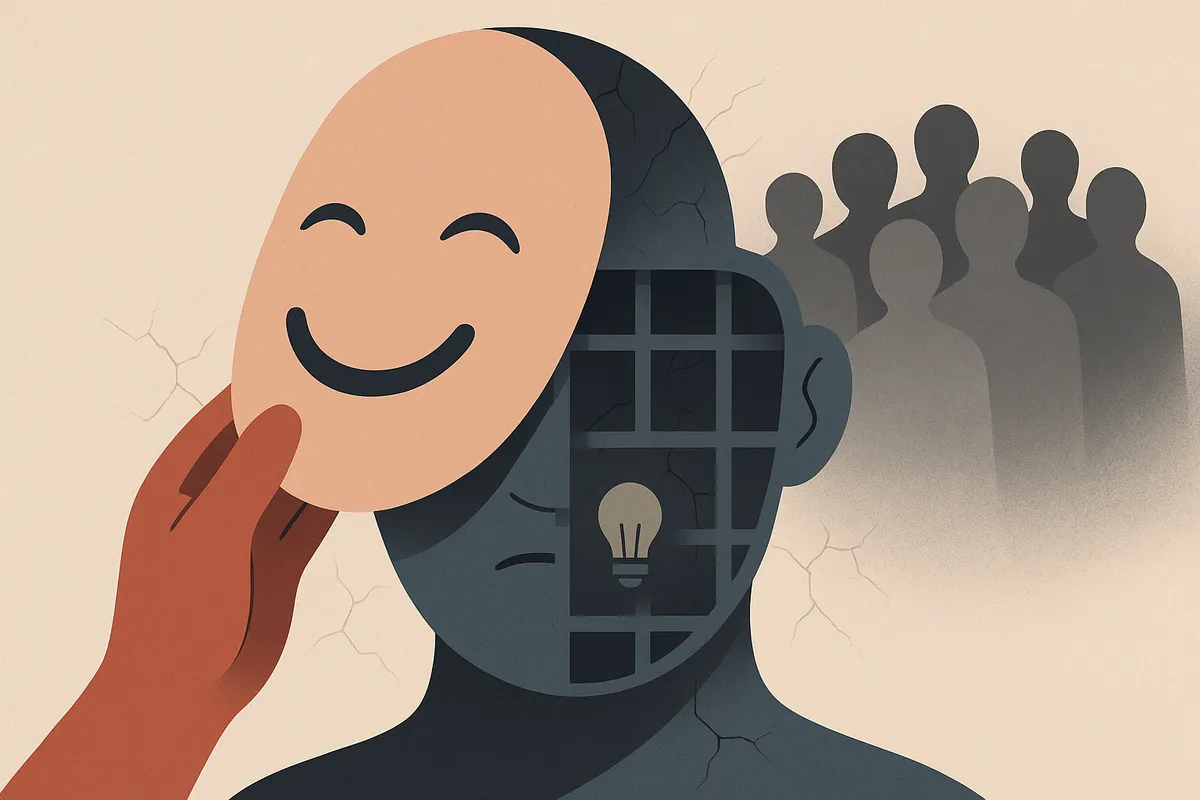Play-Based Compliance: When Venture Capital Rebrands the Same Old Harm
 Another day, another “breakthrough” in autism care that forgets who it’s for.
Another day, another “breakthrough” in autism care that forgets who it’s for.
Positive Development just raised $51.5 million in a Series C round to scale its autism therapy services. The investors — aMoon, B Capital, Flare Capital and others — aren’t disability justice advocates. They’re portfolios. They’re not asking what dignity looks like. They’re asking what scale does.
The company says it offers a “family-centered, play-based approach.” They’ve branded it DRBI — Developmental Relationship-Based Intervention — and call it an “alternative to ABA.” But when a model never names autistic governance, never defines consent, never even hints at what safety looks like for the person receiving care, it’s not an alternative. It’s a rebrand.
They call it Positive Development. But there’s nothing positive about delivering compliance through play. And no real development when the outcome is a child who’s easier to bill, not safer to be.
Let’s be honest about what this raise supports:
On their website, Positive Development answers the question “Is this for kids with behavioral problems?” with:
“Yes, we treat children with an autism diagnosis, which can be described as including ‘problematic behavior’. We do this by addressing the core underlining challenges causing the behaviors.”
Problematic for whom? This is demeaning language masquerading as clinical honesty. It reduces autistic people to a list of “problems” to be fixed. It erases our complexity and dignity by framing our behaviors as defects instead of valid self-expression. This isn’t care. It’s pathologization dressed as intervention.
Calling autistic behaviors “problematic” teaches parents, educators and clinicians to see us as broken or wrong before they even meet us. It justifies control, silencing and forced compliance — all under the banner of “help.” That framing is not just outdated — it’s harmful. It fuels stigma, neglects consent and dismisses the fundamental humanity of autistic people.
We deserve better than to be pre-judged by our behaviors. We deserve care that listens, respects and centers our autonomy — not care that diagnoses us as problems to solve.
A behavior-first model in softer language.
DRBI fits neatly within the same family as NDBIs — a class of therapies that, while branded as developmental, have been widely critiqued by autistic adults for pursuing behavioral goals like eye contact or reduced stimming under a softer tone. The tools are different. The metrics are not. These are still outcomes measured by how closely we approximate neurotypical norms. “Naturalistic” is not the same as consent-based.
Scale without sovereignty.
The company boasts that its model costs 50% less than ABA — a selling point for Medicaid, not a signal of trust. There is no mention of autistic co-design, participatory ethics or non-speaking autonomy. That silence isn’t neutral. It’s structural. When the care plan isn’t built with us, it’s built to shape us.
Outcomes for investors, not the people served.
Positive Development describes its model as “child-led” and “play-based,” without predetermined tasks. They present DRBI as a relationship-based alternative to structured behaviorist models, aiming to build skills like communication and emotional regulation through trust and connection. While the tone is gentler, there’s still no mention of how consent is structured — or how the child’s goals are defined, especially for those who don’t communicate in conventional ways.
But nowhere is consent defined. “Measurable outcomes” refers to behavior goals — not safety goals. And the cost-savings promise frames efficiency, not alignment with the child’s internal pace.
The pitch is clear: scalable, measurable, tech-integrated. That’s not a red flag on its own. But when the only outcomes you mention are speed and savings, don’t pretend it’s about the child. That’s compliance by another name — just with more polished UX.
What’s missing — and what should be there
If this were truly care centered on autistic people, it would include:
- Autistic-led advisory boards and governance
- Consent structures for non-speaking clients — not just compliance targets
- Co-created care goals, not parent-pleasing metrics
- Outcome metrics grounded in felt safety, not surface behavior
Don’t confuse rebranding with reckoning.
Yes, it moves beyond legacy ABA. But if the only shift is tone — not governance, not consent, not power — then it’s not progress. It’s just harm that has slicker branding.
Because when autistic people ask for care, we’re not asking for cheaper control. We’re asking for relationship that doesn’t train us out of ourselves.
And $51.5 million says they’re still not listening.